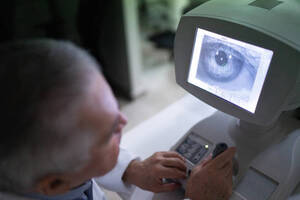LASIK vs. PRK: Which Laser Eye Surgery Option is Better?
Body
Laser eye surgery has revolutionized the field of ophthalmology, offering patients the freedom to see clearly without relying on glasses or contact lenses. Two of the most popular procedures, LASIK (Laser-Assisted In Situ Keratomileusis) and PRK (Photorefractive Keratectomy) are commonly recommended for correcting vision problems such as myopia, hyperopia, and astigmatism. While both methods use laser technology to reshape the cornea, they differ in technique, recovery time, and suitability for different types of patients. Understanding the pros and cons of each procedure is essential when considering which laser eye surgery is right for you.
The Procedure: How LASIK and PRK Differ
LASIK involves creating a thin flap in the cornea, which is lifted so the laser can reshape the underlying tissue. Once the laser has done its job, the flap is replaced, acting as a natural bandage. In contrast, PRK does not involve a corneal flap. Instead, the outer layer of the cornea (epithelium) is gently removed to expose the surface for laser treatment. The key difference lies in the initial step of the surgery, which impacts healing time and comfort. LASIK tends to offer faster visual recovery, often within 24 hours, while PRK may take several days to a week as the epithelium regenerates.
Suitability and Recovery
When choosing between LASIK and PRK, individual eye health and lifestyle play a major role. PRK is often recommended for patients with thin corneas, dry eyes, or those engaged in high-contact activities where the corneal flap could be at risk. Although PRK has a longer healing period and may cause temporary discomfort, it has a lower risk of flap-related complications. LASIK, on the other hand, is ideal for those seeking quick recovery and minimal downtime. However, it may not be suitable for everyone, especially those with irregular corneas or chronic dry eye conditions. Both procedures offer comparable long-term results in terms of improved vision and patient satisfaction.
Conclusion:
In the world of laser eye surgery, both LASIK and PRK offer effective solutions for correcting vision with lasting results. The choice between the two depends largely on your corneal thickness, lifestyle, and personal preferences. Consulting with a skilled ophthalmologist is the best way to determine the most suitable procedure for your eyes. Whether you choose LASIK for its rapid recovery or PRK for its long-term stability, modern advancements in laser eye surgery continue to make clear vision more accessible than ever.






Comments